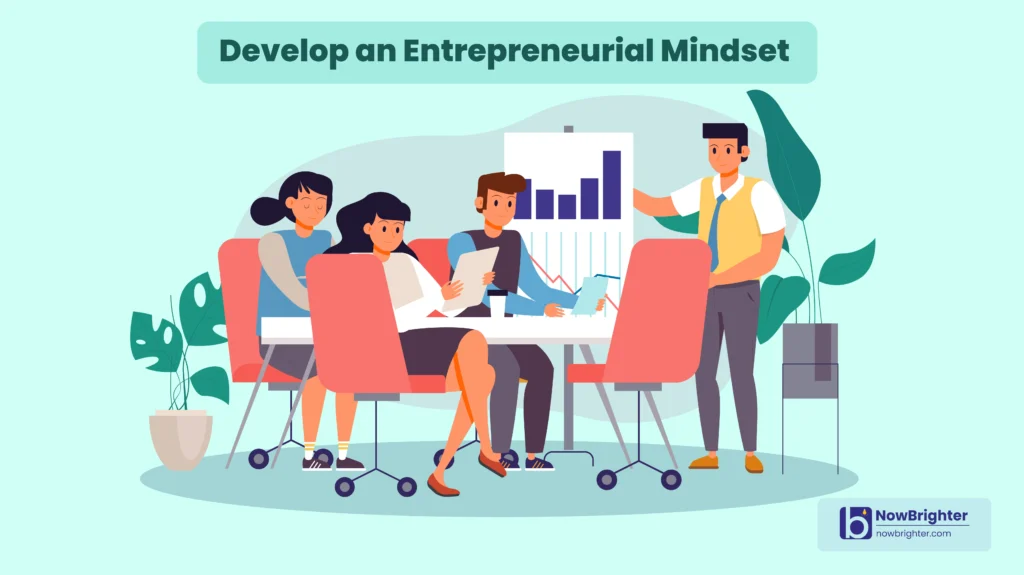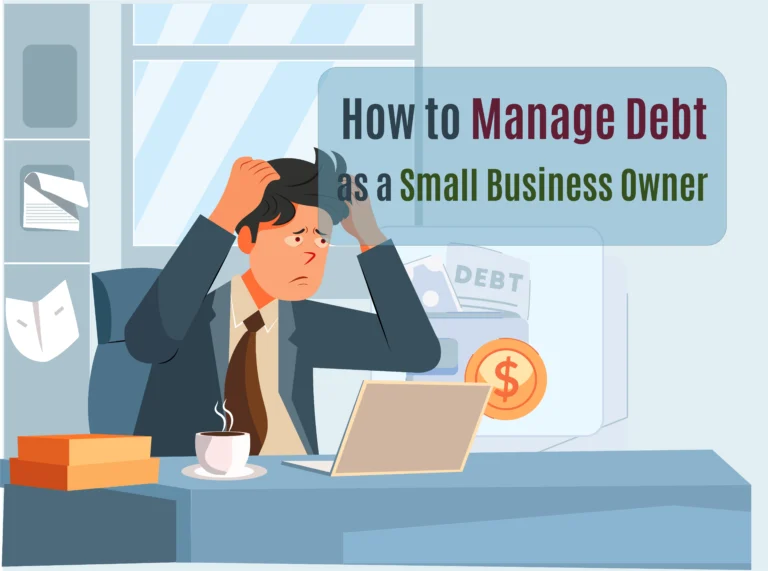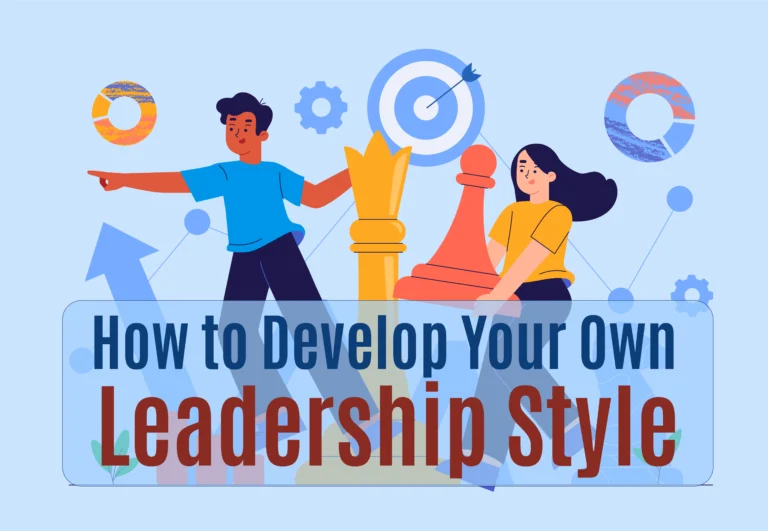How to Develop an Entrepreneurial Mindset: 15 Powerful Strategies to Cultivate Success
In today’s rapidly evolving business landscape, developing an entrepreneurial mindset is not just an option—it’s a necessity. Whether you’re starting your own business, leading a team, or simply looking to make a significant impact in your industry, the mindset you bring to the table will largely determine your success. An entrepreneurial mindset is about more than just having the skills to start a business; it’s about cultivating the right attitude, resilience, and innovative thinking that can help you navigate the challenges of entrepreneurship.
Many successful entrepreneurs attribute their achievements not just to their business acumen, but to their mindset. They view failures as learning opportunities, embrace risk, and constantly seek growth. This mindset doesn’t come naturally to everyone, but the good news is that it can be developed. In this post, we’ll explore how to develop an entrepreneurial mindset, focusing on actionable strategies that you can start applying today. By the end, you’ll have a clearer understanding of how to think like an entrepreneur and take your first steps towards entrepreneurship.

1. Embrace a Growth Mindset
A fundamental aspect of an entrepreneurial mindset is the belief that you can improve and grow through hard work, learning, and perseverance. This is known as a growth mindset, a term popularized by psychologist Carol Dweck. Entrepreneurs with a growth mindset believe that their abilities and intelligence can be developed with effort, which encourages them to take on challenges and persist in the face of setbacks.
Example: Consider the story of Elon Musk, who, despite numerous failures with SpaceX and Tesla, continued to push forward, learning from each setback and eventually achieving groundbreaking success. Musk’s growth mindset allowed him to see failures as opportunities to learn, rather than reasons to give up.
2. Learn to Take Calculated Risks
Entrepreneurship is inherently risky, but successful entrepreneurs know how to manage and mitigate these risks. Developing an entrepreneurial mindset means learning to assess risks, weigh potential rewards, and make decisions that balance caution with boldness.
Example: Richard Branson, the founder of the Virgin Group, has famously taken many calculated risks throughout his career. He once started a transatlantic airline in the fiercely competitive aviation industry, a move many considered reckless. However, by carefully assessing the market and leveraging his brand’s strengths, Branson turned Virgin Atlantic into a major success.
3. Cultivate Resilience
Resilience is the ability to recover from setbacks and keep moving forward. In entrepreneurship, resilience is key, as the path to success is often fraught with obstacles and failures. Developing resilience means learning to bounce back from difficulties and maintain your focus on long-term goals.
Example: Consider J.K. Rowling, who faced numerous rejections before finally getting her Harry Potter manuscript accepted. Her resilience paid off, leading to one of the most successful book franchises in history.
4. Develop Problem-Solving Skills
ntrepreneurs are problem solvers by nature. They see opportunities where others see obstacles and are always looking for ways to improve processes, products, or services. To develop an entrepreneurial mindset, you need to hone your problem-solving skills. This means approaching problems with a solution-oriented mindset and thinking creatively about how to overcome challenges.
Example: Steve Jobs was known for his relentless focus on solving problems in ways that improved user experience. His approach to developing products like the iPhone revolutionized the tech industry by addressing consumer pain points in innovative ways.
5. Focus on Continuous Learning
The entrepreneurial mindset thrives on knowledge and learning. Entrepreneurs never stop educating themselves, whether it’s through formal education, self-study, or learning from others. Continuous learning keeps you adaptable and open to new ideas, which is crucial in the ever-changing world of entrepreneurship.
Example: Bill Gates is a lifelong learner who attributes much of his success to his habit of reading and learning from a wide range of sources. This commitment to learning has helped him stay ahead of trends and maintain his position as one of the world’s leading innovators.
6. Foster a Positive Attitude
A positive attitude is essential in entrepreneurship. It helps you stay motivated, overcome challenges, and inspire others. Developing an entrepreneurial mindset means cultivating optimism and the belief that you can achieve your goals, even when faced with difficulties.
Example: Oprah Winfrey’s positive attitude and belief in her ability to succeed helped her rise from a difficult childhood to become one of the most successful and influential entrepreneurs in the world.
7. Network and Build Relationships
Entrepreneurs know the value of networking and building relationships. Developing an entrepreneurial mindset means understanding that success often depends on the connections you make and the relationships you cultivate. Networking helps you gain access to resources, knowledge, and opportunities that you might not have on your own.
Example: Mark Zuckerberg’s success with Facebook can be partly attributed to his ability to build relationships with key investors and advisors who helped him navigate the challenges of growing his company.
8. Set Clear Goals and Stay Focused
Having clear goals is a cornerstone of an entrepreneurial mindset. Entrepreneurs know where they want to go and have a plan for getting there. Setting goals helps you stay focused and motivated, providing a roadmap for your entrepreneurial journey.
Example: Jeff Bezos, founder of Amazon, set a clear goal to make his company “the Earth’s most customer-centric company.” This vision has guided Amazon’s growth and innovation, making it one of the largest and most successful companies in the world.
9. Embrace Failure as a Learning Tool
One of the key differences between successful entrepreneurs and others is how they perceive failure. Developing an entrepreneurial mindset means understanding that failure is not the end but a valuable learning experience. Each failure provides insights that can be used to improve future efforts.
Example: Thomas Edison failed thousands of times before successfully inventing the lightbulb. He famously said, “I have not failed. I’ve just found 10,000 ways that won’t work.” His ability to learn from failure was crucial to his success.
10. Be Adaptable and Open to Change
The business world is constantly evolving, and successful entrepreneurs are those who can adapt to change. Developing an entrepreneurial mindset means being open to new ideas, willing to pivot when necessary, and staying flexible in your approach.
Example: Netflix started as a DVD rental service but successfully pivoted to become a leading streaming service when it became clear that digital streaming was the future. This adaptability has been key to its ongoing success.
11. Develop Strong Self-Discipline
Self-discipline is crucial for entrepreneurship. It’s what keeps you moving forward even when motivation wanes. Developing an entrepreneurial mindset means learning to manage your time, set priorities, and stay focused on your goals, even when distractions arise.
Example: Serena Williams, though not a traditional entrepreneur, embodies self-discipline that is crucial for entrepreneurial success. Her rigorous training regimen and unwavering focus on her goals have made her one of the greatest athletes of all time.
12. Take Ownership and Be Accountable
Entrepreneurs take full responsibility for their actions and decisions. Developing an entrepreneurial mindset means embracing ownership of your work, being accountable for your outcomes, and learning from your mistakes. This sense of responsibility drives success.
Example: Howard Schultz, former CEO of Starbucks, took ownership of the company’s challenges during the 2008 financial crisis. His leadership and accountability helped steer the company back to profitability.
13. Cultivate Creativity and Innovation
Creativity and innovation are at the heart of entrepreneurship. Developing an entrepreneurial mindset means thinking outside the box, coming up with new ideas, and finding innovative solutions to problems. It’s about challenging the status quo and pushing boundaries.
Example: Walt Disney’s creativity and innovation transformed the entertainment industry. His ability to imagine new possibilities and bring them to life through storytelling and technology created an empire that continues to thrive.
14. Practice Patience and Persistence
Success in entrepreneurship rarely comes overnight. Developing an entrepreneurial mindset means understanding the importance of patience and persistence. It’s about staying the course, even when progress seems slow, and continuing to work towards your goals with determination.
Example: Colonel Sanders, the founder of KFC, faced years of rejection before his chicken recipe was finally accepted. His persistence paid off, leading to one of the most successful fast-food franchises in the world.
15. Stay Passionate and Purpose-Driven
Finally, passion and purpose are the driving forces behind an entrepreneurial mindset. Successful entrepreneurs are deeply passionate about what they do, and this passion fuels their persistence and creativity. Developing an entrepreneurial mindset means finding your purpose and letting it guide your actions.
Example: Steve Jobs’ passion for design and technology drove him to create products that have changed the world. His purpose-driven approach to entrepreneurship inspired a generation of innovators.
Developing an entrepreneurial mindset is not something that happens overnight. It requires dedication, self-reflection, and consistent effort. However, by applying the strategies outlined in this article, you can start cultivating the mindset needed to succeed in entrepreneurship. Remember, the entrepreneurial mindset is about more than just starting a business; it’s about thinking like an entrepreneur in all aspects of your life.
Now that you understand the importance of an entrepreneurial mindset and have the tools to develop it, the next step is to take action. Start by setting clear goals, embracing failure as a learning tool, and continuously seeking opportunities for growth. Surround yourself with like-minded individuals who can support and inspire you on your journey.
As you move forward, remember that the key to success in entrepreneurship lies in your mindset. With the right attitude, resilience, and commitment to learning, you can achieve your goals and make a lasting impact in your field. Don’t wait for the perfect moment—start developing your entrepreneurial mindset today, and take the first












